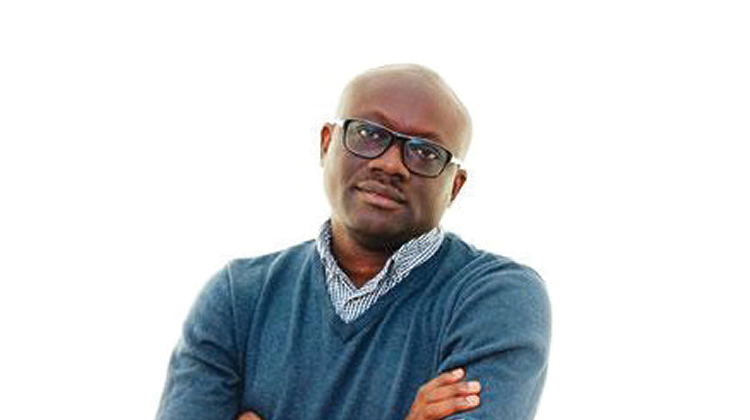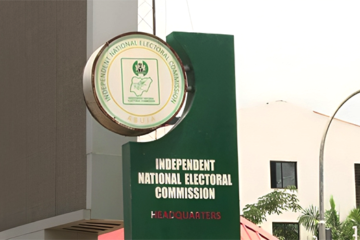Five common errors about Nigeria [OPINION]

Simon Kolawole
By Simon Kolawole
Nigeria is a rich country. You have heard this a million times, haven’t you? What exactly do people mean by “Nigeria is rich”? They believe we have enough money to build all the roads in every nook and cranny of the federation, provide piped water to every house, build world-class hospitals in every village, and provide free primary, secondary and tertiary education — and still have plenty to spare for petrol and electricity subsidies and free healthcare for 200 million people. The biggest problem, they say, is corruption and waste. Therefore, if we end corruption and waste today, Nigeria will be so rich our problem will no longer be money but how to spend it. This is a common belief.
In a series of articles starting from today, I intend to highlight five common errors we make about our country. They are so common that we just repeat them without scrutiny. Times were when people would say inaccurate, misleading or sometimes downright false things about Nigeria and I would quietly face my lane and pretend as if I was not around. However, as I got older, I started feeling like I had a duty to do something about certain misleading notions, even though people are eternally entitled to their opinions. As we say in journalism, facts are sacred but opinions are free. You can hold whatever opinion you like but you are not allowed to make up the facts as you desire.
Here we go. The projected revenue of the federal government for 2023 is N9.73 trillion. The projected expenditure is N21.83 trillion, meaning we are going to borrow at least N11 trillion if the budget is to perform at 100 per cent. All the money to be stolen or wasted will be accommodated in budget. Let’s even say the revenue of N9.73 trillion is grossly understated and it may be double that amount if pre-remittance leakages are accounted for adequately. That gives us an assumed “true” revenue of N19.46 trillion. We can still safely assume that everything to be stolen or wasted at the federal level in 2023 will be from the N21.83 trillion budget. Right? I am driving somewhere.
According to various estimates, Nigeria needs about $80 billion yearly over the next 10 years to bridge its critical infrastructure gap. Critical infrastructure includes roads, power, water and healthcare. At the current “official” exchange rate of N454/$, that means we need N36 trillion per year for the next 10 years for critical infrastructural. That comes to N360 trillion (or $800 billion). Even if we add all the oil income and tax revenues of the federal government, 36 states and 774 local councils together (I don’t have the figures), I don’t know where the N36 trillion revenue per year will come from. I am even assuming we would not pay salaries and pensions or fund public agencies.
Do not get me wrong: I am not saying we do not have a corruption problem. I am not denying that we waste money like water. I am not that silly. I am very much aware of the money heist that is going on at every level of government — federal, state and local. If nothing else, I read the bulletins from the EFCC and ICPC. But my argument is that even if no kobo is stolen or wasted, Nigeria still does not have enough money to meet its critical needs. Even if every kobo is spent conscientiously and judiciously, Nigeria will still not be able to finance its critical needs. Now imagine the tragedy of stealing and wasting what is patently not enough! It is a case of double jeopardy for Nigeria.
The impression that “Nigeria is rich” may be a product of conceptual fallacy. I suspect that people say this because of the oil wealth. It is generally believed that since we are among the biggest producers of oil in the world, then we are among the richest. When people say “Nigeria is rich but our problem is waste and corruption”, I think they are calculating the barrels of crude oil and the prices in the international market. Once upon a time, Nigeria was the sixth largest producer of oil in the world and was on list of countries with the largest oil reserves. These facts created the impression that “Nigeria is extremely rich”. Hence, the key details often escape our attention.
How do you measure the wealth of a nation? If we want to define our richness by oil revenue, things still do not add up. In 2021, Saudi Arabia (population: 36 million) earned $161.7 billion from oil exports; Russia (143 million), $82 billion; and Canada (38 million), $74 billion (7.5%). But Nigeria (200 million) earned $30.6 billion. For context, Kuwait, with 4 million people (less than the registered voters in Kaduna state), earned $36 billion from oil exports same year. Nigeria with over 200 million people earned less than Kuwait which has just 2% of our population. Our oil revenue, even if well spent, cannot service our population. Why then do we think that we are rich based on petrodollars?
If we choose to measure the wealth of a country by using the benchmark of gross domestic product (GDP), we are still not rich. GDP aggregates the income generated by a nation’s economy during a given period. This gives us the value of its economic activities and indicates the strength of the economy. GDP-wise, the US is biggest with $20.89 trillion, followed by China ($14.72 trillion), Japan ($5.06 trillion), Germany ($3.85 trillion), and the UK ($2.67 trillion). These are 2022 data as provided by the World Bank. Nigeria, with a GDP of $441 billion, has the biggest economy in Africa, followed by South Africa with $418 billion and Egypt with $402 billion. But there is devil in the details.
By the time you adjust the GDP figures for population, a bigger picture emerges. Nigeria (200 million) has a GDP per head of about $2,066. South Africans (56 million) are thrice “richer” — $7,055 per head. For Egypt (109 million), it is $3,699. In contrast, the US (331 million) has a GDP per capita of $63,413; China (1.4 billion), $10,434; and Japan (126 million), $39,048. Now, if we choose the route of gross national income (GNI) per capita using the purchasing power parity (PPP), which measures what a dollar can buy locally, Nigeria is still not up there, although figure improves to $5,200. South Africa goes up to $14,340 and Egypt $12,320. These are World Bank data for 2021.
Or are we confusing individual wealth with national wealth? Speaking in Nairobi, Kenya, sometime in 2013, President Goodluck Jonathan said, and I paraphrase, “How can they say Nigeria is one of the poorest countries in the world when Alhaji Aliko Dangote, the richest black man, is a Nigerian? Since we arrived here, Kenyans have been talking about the number of private jets that Nigerians flew into Kenya.” But assuming we define “Nigeria is rich” by the wealth of a few individuals, we are still missing it. When we say we can afford to build all the roads and provide free electricity and free healthcare to 200 million of Nigerians, we surely cannot be talking about Dangote’s wealth.
Perhaps when we say “Nigeria is rich”, we are not really talking about the oil revenue and the GDP. Rather, we are thinking of the potential: natural resources, human capital and arable land, etc. In that case, I agree completely. We can reach a compromise on that by saying if Nigeria was well managed, it would be among the richest countries in the world — howsoever defined. In GDP, we would be rich because we have capacity to build a very productive economy. In revenue, we would be very rich because the economy would be robust. Even in oil wealth and other mineral endowments, we could be far richer because the chronic mismanagement would be wiped out.
Unfortunately, the prevalent notion that “Nigeria is rich” because of the petrodollars is one of the things holding back our ability to become rich. For one, a typical Nigerian does not want to pay cost-reflective tariffs for the commodities they consume. In all of West Africa, Ghana and Benin Republic inclusive, citizens pay for petrol and electricity at the market prices, with VAT and other taxes added on top. They do not see cheap fuel or electricity as a birth right. In Nigeria, we feel entitled because “Nigeria has oil” and “Nigeria is rich”. Any attempt to make the necessary and sensible adjustments is resolutely resisted. We would rather burn N3 trillion on petrol subsidy than invest it in hospitals.
Also — and this is paradoxical — it is argued that millions of Nigerians should not pay income tax because they are “poor”. But shoe shiners and hairdressers pay income tax in Ghana. Are our own shoe shiners and hairdressers poorer? We just think we are special in this country because we have oil. Our poorer neighbours have higher tax-to-GDP ratio compared to us. In fact, we have the lowest tax-to-GDP ratio in Africa and one of the lowest in the world. In the pre-Independence Nigeria when Dr Nnamdi Azikiwe, Sir Ahmadu Bello and Chief Obafemi Awolowo presided over the regions, woe betide you if you didn’t pay your income tax (poll tax) claiming to be poor! What happened to us?
Our mindset today is built on the notion that Nigeria is rich and its citizens do not have to bear part of the cost of providing and maintaining public services. Businesses share most of the tax burden while most individuals escape the net. This has damaged the critical element of state-society intercourse in a democracy, where citizens — riding on their fiscal contribution to the state —engage with the government on the issues of accountability and transparency over “taxpayers’ money”. Instead, we are all going for our share of the oil money by hook or crook. After all, isn’t Nigeria rich? Let us just gather and share the money and have fun. It is a miserable mindset.
My summary: the notion that Nigeria is rich is not backed by the cold facts. But I agree absolutely that Nigeria is potentially rich. However, we can only attain our potential through good governance at all levels (not just in Abuja, which I intend to discuss in the next article). We can only become rich through massive investment in the productive capacities of our people. What is mineral wealth when it only induces mismanagement? What is arable land when yield per hectare is poor? What is human capital when people are illiterate, hungry and sick? How can we deliver first-class healthcare and education when we are burning scarce resources on the egos and libidos of the elite class?
Culled from ThisDay











